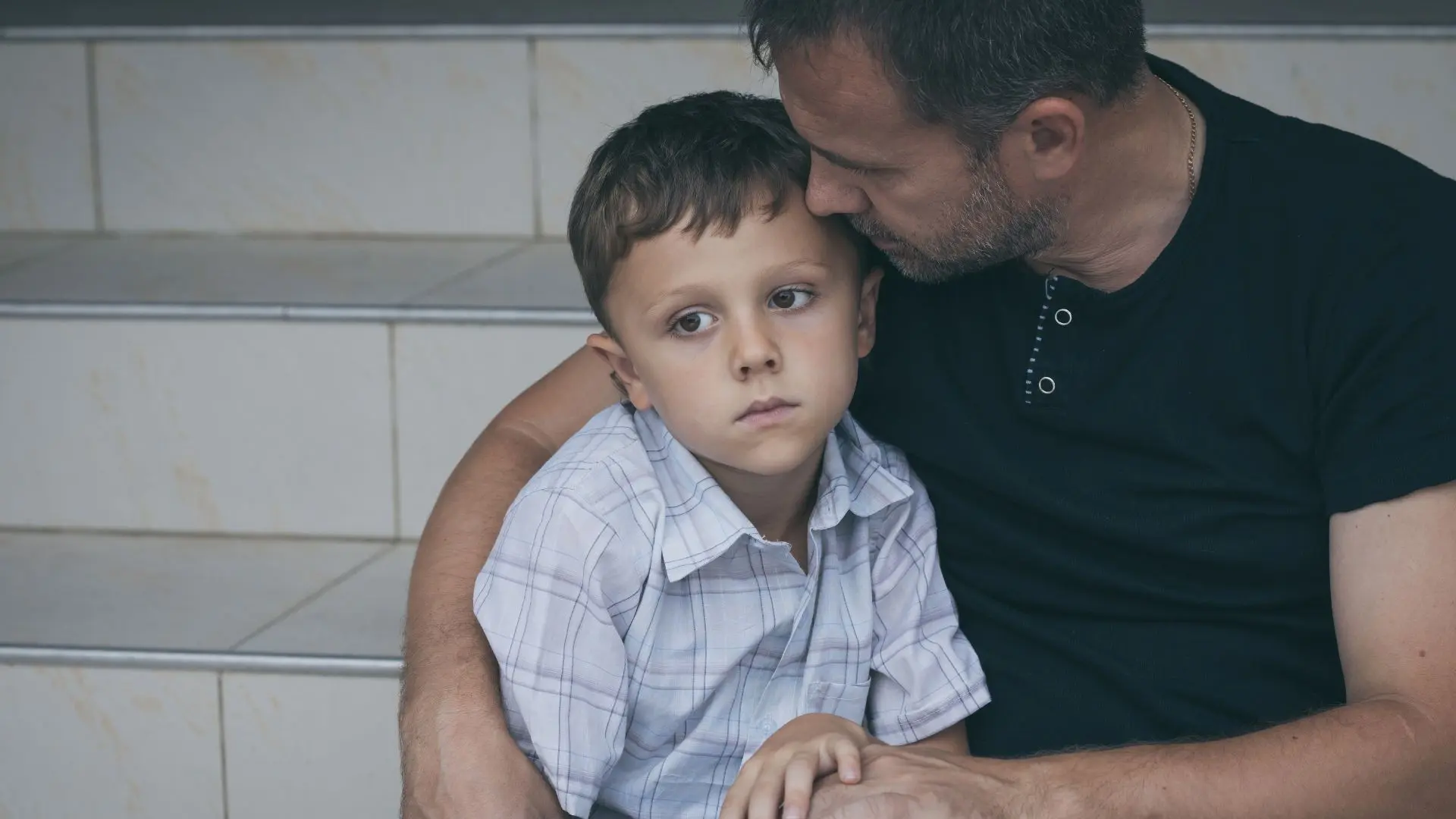
Parenting has changed—and so have the parents. In 2024, millennial parents are navigating uncharted waters, raising children in a world shaped by rapid technological advancements, constant connectivity, and a growing emphasis on emotional health.
These parents are rejecting outdated practices and choosing to raise their kids in a way that prioritizes mental, emotional, and even financial resilience. But why? And how does the Millennial Parenting Style play into this shift?
Below we’ll explore how millennial parents are raising emotionally intelligent children—and why they’re prioritizing this over the traditional methods of discipline, achievement, and conformity. We’ll also examine how their own experiences shaped this decision, and whether they’re making the right choice for their children’s future success.
What Is Millennial Parenting Style? And How Does It Differ from Traditional Parenting?
Millennial Parenting Style represents a break from the authoritarian, strict approaches of past generations. It’s a style that emphasizes empathy, emotional validation, and personal growth.
While previous generations might have focused on enforcing rules, controlling behavior, and pushing for academic or career success at all costs, millennial parents understand that emotional intelligence (EQ) is just as important as grades or job promotions.
This shift reflects a deep understanding that children’s success isn’t solely determined by intellect or compliance, but by how well they can navigate their emotions, build relationships, and maintain mental and emotional resilience.
How Millennial Parenting Is Different
- Empathy Over Obedience: Traditional parenting often used “because I said so” as a method of control. In contrast, millennial parents focus on understanding the emotions behind a child’s behavior and guiding them with empathy.
- Mental Health Awareness: Millennial parents are much more open about mental health struggles, both their own and their children’s. They prioritize open communication and emotional literacy, ensuring that their children feel heard and validated.
- Embracing Technology While Setting Boundaries: Unlike older generations who might have been unfamiliar with or suspicious of technology, millennial parents use it as a tool for learning, but they are also conscious of the need to set boundaries to avoid emotional detachment from real-life interactions.
Why Millennial Parents Are Prioritizing Emotional Intelligence Over Traditional Metrics of Success

1. The Mental Health Crisis: Breaking the Cycle
For many millennial parents, the shift toward raising emotionally intelligent children is deeply personal. Millennial parents grew up in a time when mental health wasn’t discussed openly. Many were told to “tough it out” when they felt anxious, sad, or overwhelmed. As a result, this generation struggled with expressing their feelings, often leading to mental health struggles later in life, like anxiety, depression, and difficulty managing stress.
Millennial parents don’t want their children to inherit this cycle. Emotional intelligence offers a way to help kids build mental resilience, process difficult emotions, and maintain strong relationships—without the fear or shame that often accompanies emotional struggles.
Example: A millennial mom named Sarah remembers being told as a child to “stop being so emotional” whenever she cried or expressed frustration. That dismissal of her feelings left her struggling to process emotions and led to difficulties communicating in her relationships later in life.
Determined to change the cycle, Sarah now teaches her daughter that all emotions—whether sadness, anger, or joy—are valid and worth discussing. When her daughter feels overwhelmed, Sarah sits with her and says, “I see you’re upset. “Let’s discuss it together and find a solution that works.”
This empathetic approach is helping her daughter grow into a child who is confident in expressing her emotions and resilient when facing challenges.
2. Raising Resilient, Emotionally Strong Kids: Not Just Academically Successful, but Whole
Millennial parents understand that success isn’t just about academic achievement or financial success. While those are important, emotional strength, resilience, and the ability to navigate setbacks are just as critical for thriving in the real world. They want their children to grow up knowing how to manage stress, face adversity with a healthy mindset, and build empathy for others.
In a recent study by the American Psychological Association, it was found that children who were raised with high levels of emotional intelligence were not only better at managing stress but also had better academic outcomes and healthier relationships as they entered adulthood. This aligns with millennial parents’ desires to equip their children with the emotional tools they lacked.
Example: Rachel, a working mom of two, encourages her children to talk about their feelings before and after school. Her youngest, Noah, often feels anxious about school projects. Rather than saying, “just deal with it,” Rachel gently asks, “Which part of this is making you feel anxious?” How can we break it down together so it doesn’t feel so overwhelming?”
This approach teaches Noah to approach challenges with a problem-solving mindset while understanding and managing his emotions in the process.
3. Financial Resilience: Preparing for Future Success
A key area where millennial parents are diverging from traditional practices is in financial literacy. Unlike older generations who may have focused purely on academic success as the way to secure a future, millennial parents understand that financial self-sufficiency and entrepreneurial thinking are just as vital.
Research shows that financial literacy is a learned skill, and parents who teach their children to manage money from an early age are setting them up for success in adulthood. Many millennial parents are already teaching their kids how to save, budget, and think critically about the value of money—not just waiting until they’re older to have these conversations.
Example: John and Lisa have a 10-year-old daughter, Mia, who is learning the basics of budgeting and saving. Every month, Mia receives a small allowance, and John helps her set goals, such as saving up for a new toy or donating to a charity. This experience helps Mia develop a healthy relationship with money while learning the importance of financial responsibility at an early age.
The Challenges Millennial Parents Face in Pursuing This Parenting Style
Despite the best intentions, millennial parents face significant challenges when trying to raise emotionally intelligent, well-rounded children. Here’s a look at some of the hurdles they face:

1. Balancing Emotional Engagement and Everyday Pressures
Millennial parents, especially working parents, often struggle to find the balance between being emotionally available for their children while juggling demanding careers and personal lives. This mental load can sometimes hinder their ability to implement the more mindful, emotionally engaged approach they want for their children.
Solution: Prioritize quality time. Even if it’s just 15 minutes of uninterrupted time each day, make it count. Whether it’s reading a book together, having a candid conversation, or simply playing a game, these moments are essential for nurturing emotional intelligence.
2. Fearing Over-Indulgence
Some millennial parents worry that being too empathetic or gentle could lead to over-indulgence or entitlement. They may fear that being too emotionally engaged could allow their kids to become overly sensitive or struggle with adversity.
Solution: While emotional intelligence fosters emotional expression, it’s also about teaching resilience. It’s important to create boundaries and teach kids how to handle frustration and disappointment—skills that will serve them well throughout life.
The Future Outcome of Millennial Parenting Style: A Better, Stronger Generation
The benefits of raising emotionally intelligent children are vast—and they extend far beyond just emotional health. Children raised with high EQ will likely:
- Have better mental health outcomes as adults.
- Be better equipped to handle stress and adversity.
- Be more successful in academic, social, and professional environments.
- Have stronger relationships and empathy toward others.
- Develop financial literacy that will help them build a more secure future.
Research-backed Outcome: A study published in the Journal of Applied Psychology found that emotional intelligence in childhood was a significant predictor of academic success and job performance in adulthood. This suggests that the Millennial Parenting Style, with its focus on emotional intelligence, will not only help children succeed in their personal lives but will also better prepare them for the workforce and financial independence.
Conclusion
Ultimately, millennial parents are on the right path. They are intentionally choosing to raise children who are not just academically or financially successful, but also emotionally and mentally resilient. They are making sure their children are equipped to face the challenges of the future, but in a way that fosters balance, empathy, and healthy emotional expression.
Millennial parents understand that raising children isn’t just about ensuring their kids are “perfect” by traditional standards. Instead, it’s about creating a well-rounded individual who can handle life’s complexities with intelligence, resilience, and empathy. And while the journey may come with challenges, the ultimate outcome will be a generation of children who are better equipped to thrive, not just survive, in the world ahead.
So, are millennial parents getting it right? Yes—they’re breaking the cycle of outdated parenting to ensure that their children grow into emotionally intelligent, strong, and successful individuals. It’s not easy, but it’s the kind of investment that will pay dividends for generations to come.
You may also be interested in : Parenting Without Guilt: How to Apply Positive Punishment Effectively